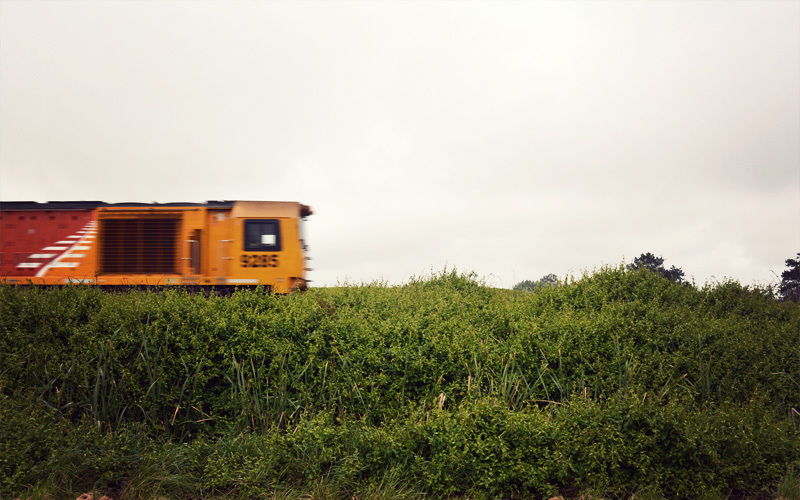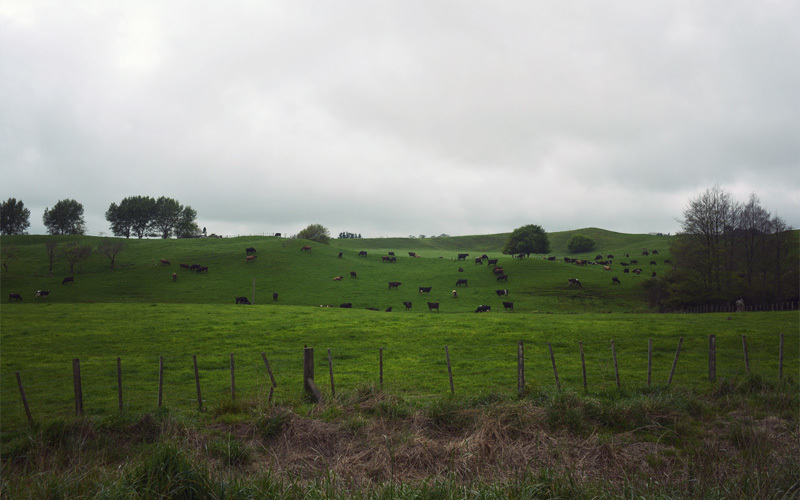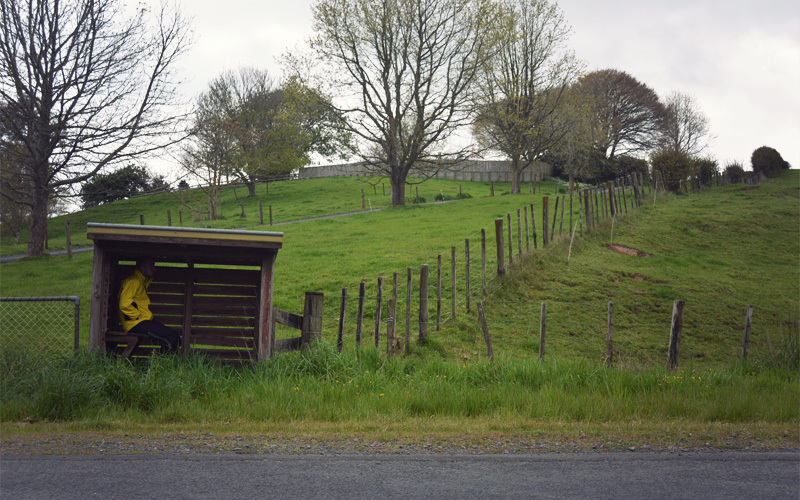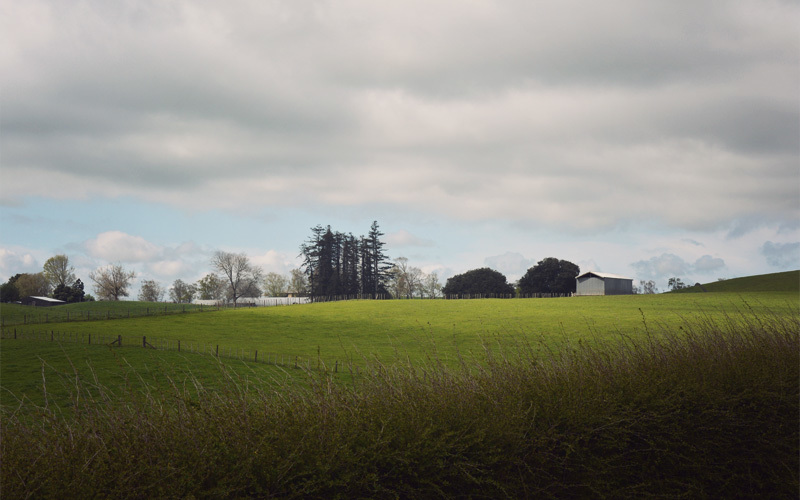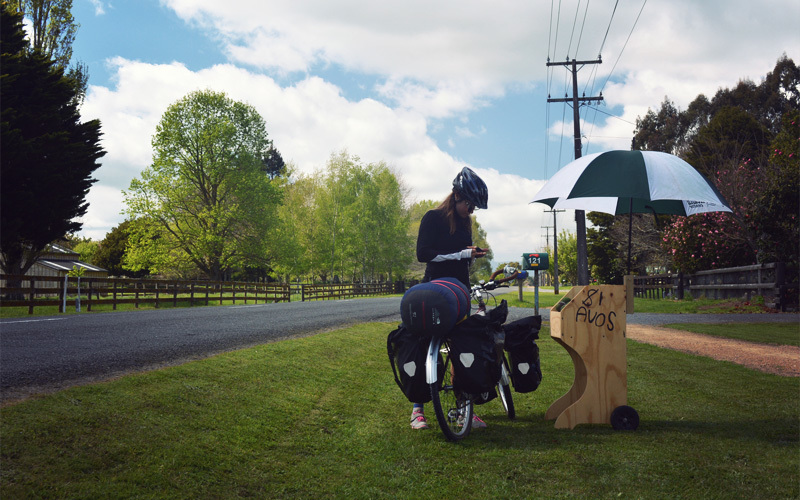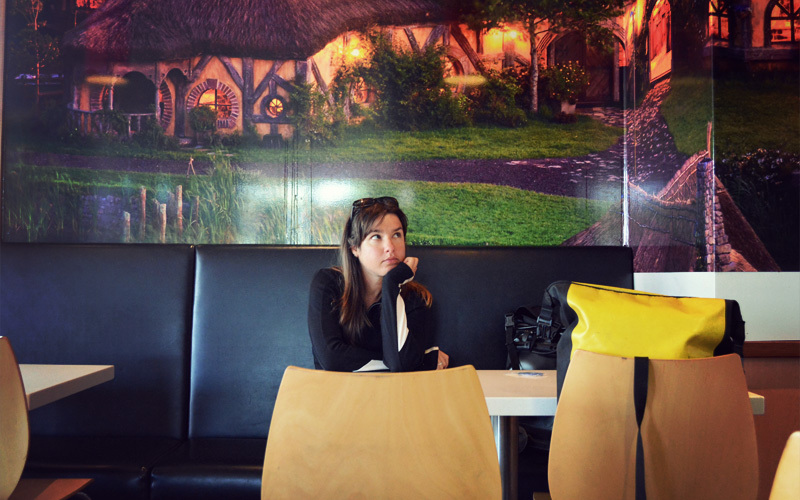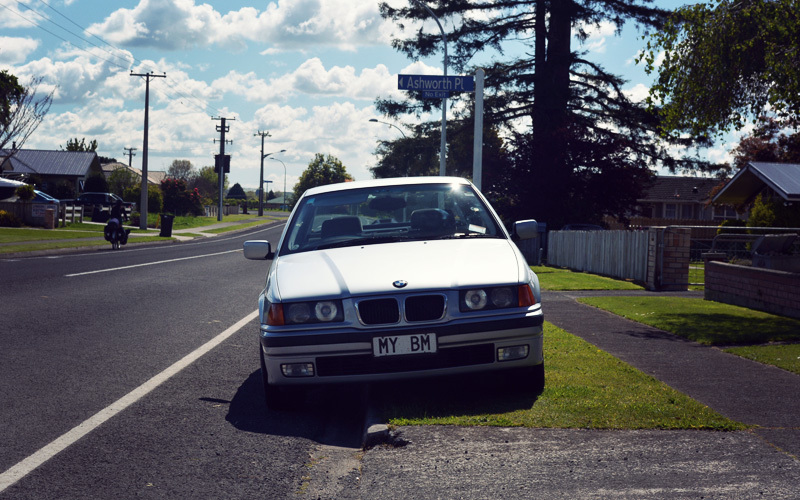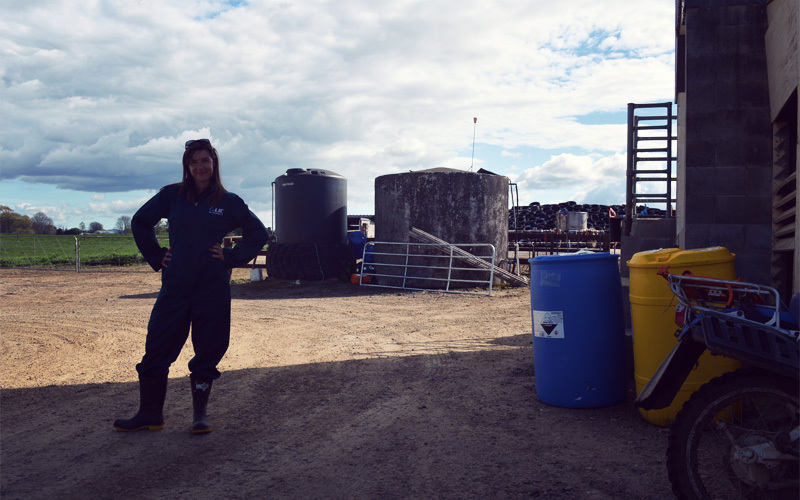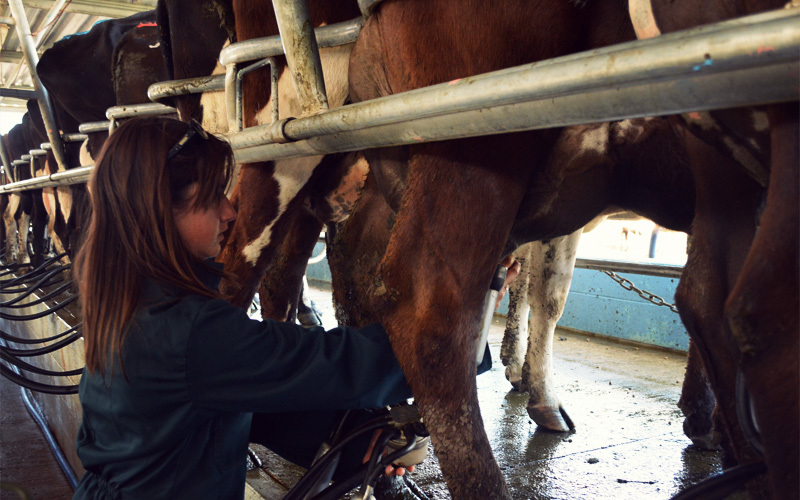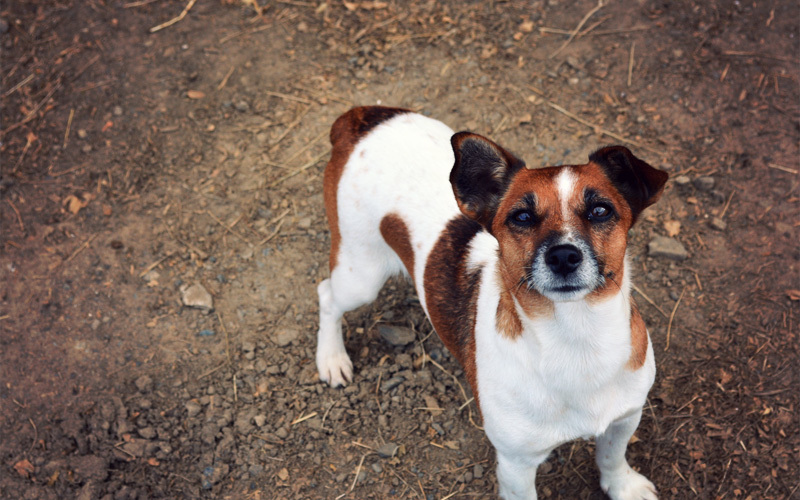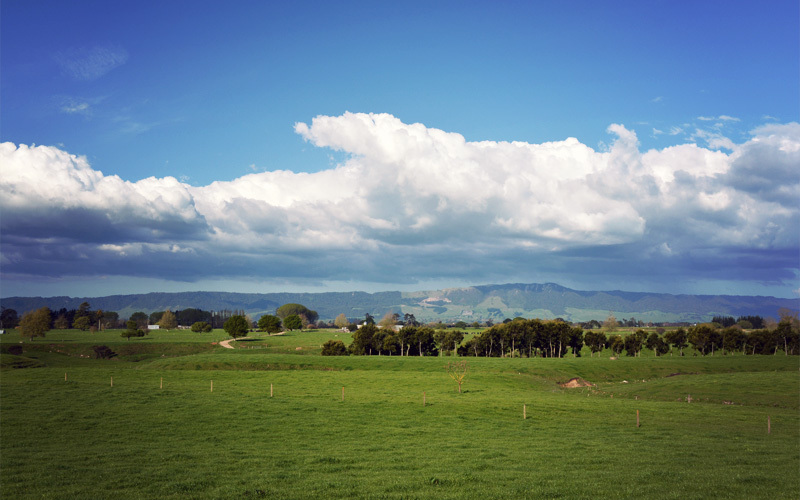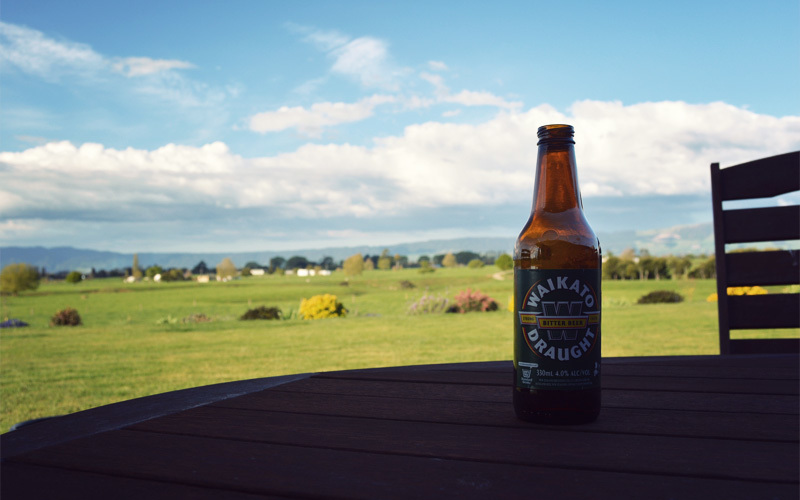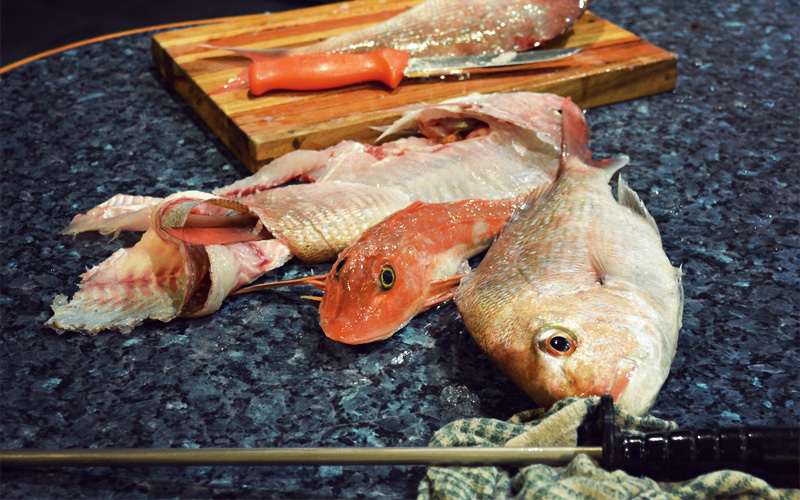October 12, 2014
Day 47: Morrinsville, NZ to near Matamata, NZ
We poke our heads out from under the rain fly and find that the mostly clear skies of the last few days have left us. In their place it's a pale curtain of low clouds and thick fog that makes it hard to see beyond the trees at the edge of the pitch. We pack up quickly and head for the bathroom, but when we get there we discover that it's one of those automated things we found on our way out of Auckland, and it doesn't unlock itself for another fifteen minutes. That leaves us to make peanut butter and honey burritos and a cup of tea as we dream about taking a dump to the sweet sound of a lone piano playing Burt Bacharach's "What the World Needs Now is Love," while hoping that we get our business done before the ten-minute time limit expires and the door automatically unlocks itself.

| Heart | 1 | Comment | 0 | Link |
On the road we return to the gentle hills and mooing of cows that we left behind last night. We also continue to surprise and worry the little calves, some of whom are probably young enough that they haven't yet seen a bicycle and don't know what to make of us. At one point I see a round metal sign hanging on a fence post that reads No Shooting in hand-painted letters. It stands out because unlike in America, out here it's uncommon to see something like that. In the rural U.S. you can't go five minutes without looking over at a No Hunting or No Trespassing sign, but at least where we've been so far, those things are either less of a problem or the people who live out here are less concerned with them.
The roads on which we ride remain wonderful: well-paved and isolated and so free of cars that in most places there isn't even a center line. We left Auckland expecting the worst and have found quite literally the best. At one point while riding side by side I turn to Kristen and say to her with great excitement, "I'm loving the shit out of this country!" More honest words I've never spoken.
Because of the cold and all of the moisture in the air, we ride in rain jackets, rain pants, and with our hands in gloves to try and keep warm. If lumpy looking clothing and with odd proportions and horrible colors that makes annoying swishing sounds was considered attractive, on this morning we would without a doubt be the sexiest couple in New Zealand.
Matamata brings us groceries for the coming days and a stop at McDonalds, where in addition to burgers and sandwiches with fish of questionable origin you can (and I do) get a little handheld pastry stuffed with chicken and veggies and white gravy called a Georgie Pie.
Not far from town we ride past a large farmhouse where a woman on her hands and knees tends to some of the plants that line the gravel driveway leading up to the home.
"Headed to Hobbiton are ya?" she calls out as we roll by.
It would be rude to simply yell out "Not today!" and keep going, so we turn around and roll to a stop next to the mailbox.
"We're headed that direction," I tell her, "But we're not stopping there. We're trying to make it on to a DOC campsite about twenty miles from here. Err, well, however many kilometers twenty miles is. I haven't quite figured out the conversions yet."
We end up spending about ten minutes talking with Robyn about cycling in this area and in the places we'll soon be headed, about her life growing up on a farm, about living here with her husband Henry on the dairy farm that he owns and his son runs, and about the limited impressions of New Zealand that we've picked up during our first few days in the country. When we mention that we'll be volunteering on organic farms when we reach the South Island in a few weeks, she asks if we'd like to try our hand at milking some of the cows they own here. She also asks if we need any water, offers to cook us dinner if we're interested, and more than once gives us the opportunity to stay the night in her home.
And then, like a couple of fools, we thank her sincerely and continue on. It's a beautiful day, we're stocked with food and water, and we have miles to cover. It all makes logical sense. I even ask Kristen as we're riding up the hill away from Robyn's house, "Are you sure you don't want to stay there tonight?" But she says no. When I ask her a second time, she tells me again that we should keep pushing. Part of me agrees with her, and so we do.
A mile farther up the road we talk about our decision again, and by this point we've both come to same conclusion: what were we thinking? What happened to our mantra of yes to everything? The roads will be here tomorrow, the hills will be here tomorrow, and the rest of New Zealand will still be there whenever we get around to experiencing it. But the chance to learn more about the culture and character of this part of the country in a farmhouse on the outskirts of Matamata will not. We pull a u-turn as quick as we can, speed down all of the hills we cranked up over the last ten minutes, and ride to the end of Robyn's driveway just as she's about finished with her gardening.
"Ah, changed your minds, have ya?" she asks with a smile.
She also asks if we're still interested in milking cows. We say yes, and within five minutes we're each dressed in coveralls and rubber work boots (which Kiwis call gummies) and sitting in the back of Robyn's station wagon, on our way to the farm's milking operation.
When we arrive we see several small buildings arranged around a larger covered but open-sided structure. That's where two workers, positioned far closer to a bunch of cow assholes than most anyone would be comfortable with, handle an extensive series of rubber tubes and nozzles that together allow them to milk what look like forty or fifty cows in only a matter of minutes. With Robyn's encouragement we stumble our way into the middle of this well-choreographed dance, with Kristen learning how to match the equipment to wiggling parts of cow anatomy while I try to simultaneously take pictures, dodge powerful streams of cow poop, and avoid taking the strong kick of a hoof to the side of my face.
It's an intense, visceral experience that most people never see or even think much about. But that's the exact reason why we're thankful that we can take part in it. For the last few days all we've known of these types of farms is what's visible right at the edge of the fence line, which is limited only to things like grazing and mooing and the occasional round of humping. Now we see both the cows and the workers up close. We learn more about how a farm operates, how they move the cows around to different paddocks, how they round them up twice a day for milking, and how more cows are starting to pick up illnesses from ticks, which has never happened before in this country. We also find out more about how farming is changing in New Zealand. In many ways it's becoming more like the United States, in that farms have to increase in size and operate at a larger scale just to achieve the same level of profitability they've always had. The increased scope and complexity of federal food safety regulations also affects how much money farmers make, especially on smaller farms where the rules are the same but the costs are spread out among far fewer animals.
The rest of the afternoon and evening are more relaxed and smell less of cows. Back at the house, Robyn offers us showers, laundry, snacks, and beer, all while pulling out cycling guidebooks for us, giving us suggestions for dozens of possible places we could travel while we're in the country, telling us more about the farm, preparing the various types of food that will later come together to form dinner and dessert, and making sure that we feel comfortable and well taken care of. She is full of energy, in constant motion, never fails to take advantage of the chance to act generous toward us, and seems to take great satisfaction in all of it. It would be impossible for us to feel more welcome.
After nightfall her husband Henry returns home. He grew up on this farm and has been a dairy farmer since he was a teenager. He's a huge man, with massive hands and the build of a rugby player. He's the kind of guy who's so big and tough that just looking at him makes my ribs start to hurt. Henry brings with him a cooler full of red snapper that he caught during a fishing trip out on the coast earlier in the day. Within the hour the four of us sit down to an incredible spread of fish, sweet potatoes, rainbow chard, and bottles of local Waikato-brand beer. For all of our questions about farming and metric conversions and unfamiliar words used by New Zealanders, we're happy to answer Robyn and Henry's questions about traveling by bicycle, the cultural values that Americans think are important, and what it's really like to visit Las Vegas.

| Heart | 1 | Comment | 0 | Link |
By the time we rise from the dinner table, Kristen and I can both feel sleep hot on our heels. We help clean up as much as Robyn will let us, and we once again give heartfelt thanks to our hosts, but it takes no more than ten minutes for us to collapse into the warmth and softness of our bed like so much dead weight.
Today's ride: 29 miles (47 km)
Total: 1,611 miles (2,593 km)
| Rate this entry's writing | Heart | 2 |
| Comment on this entry | Comment | 0 |
